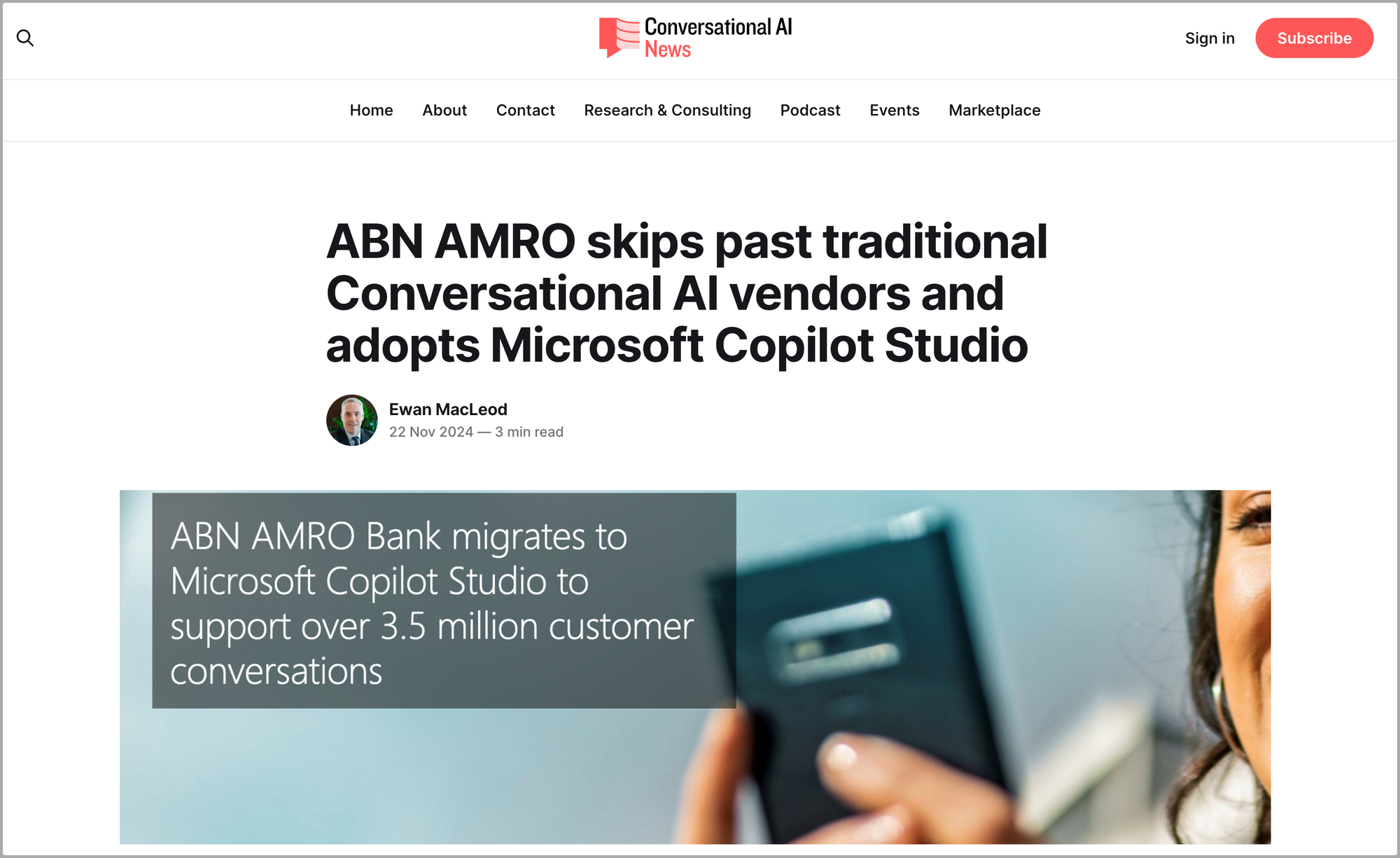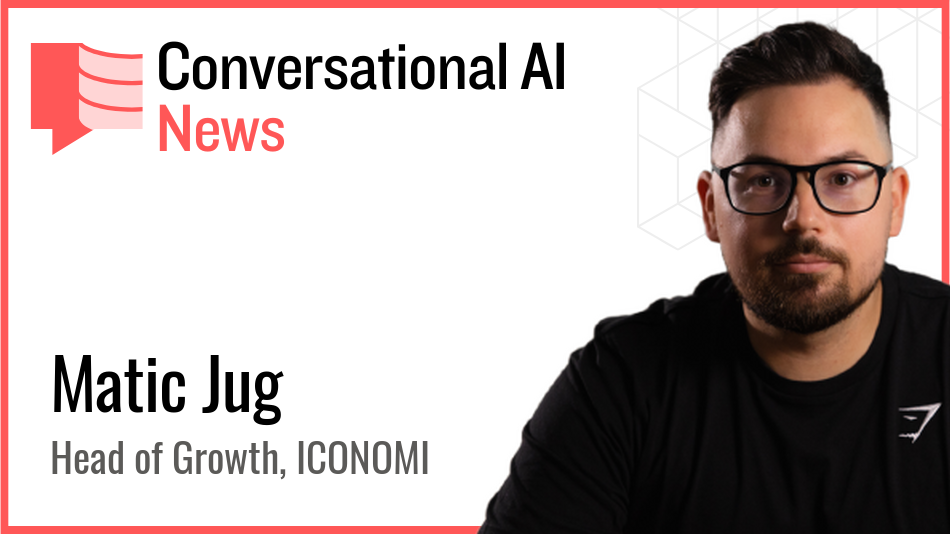"Our strategy is to wait for Microsoft Copilot to mature" - Bank CIO on Conversational AI

Welcome to 2025.
This week I've been straight back into action after New Year's Day with a series of strategy workshops for some financial services clients.
One comment from one of the workshops this morning really caught my attention. I asked the CIO for their approval to repeat the comment anonymously here – and I'm really pleased they agreed.
It's a comment that should deeply concern many of the Conversational AI vendors out there in the market, simply because it implies the potential for a sea change in approaches to the Conversational AI ecosystem.
Hot of today's news from Dubai that the Dubai Electricity & Water Authority is to standardise on Copilot across all operations and services, there is a developing mindset amongst many executives I'm speaking with about Conversational AI.
Only recently have I been corrected with phrases like, "By Conversational AI, you mean Copilot, right?"
I obviously challenge this viewpoint because it's not accurate – but it's certainly convenient for many.
The “notion that business applications exist” could “collapse” in the agentic AI era
Add to that, the recent "AI Agents will kill SaaS" headlines (Example: Microsoft CEO: AI Agents Will Transform SaaS as We Know It) doing the rounds on LinkedIn and other platforms, and we've got a lot of excitement moving in the wider marketplace – see the screenshot below from this LinkedIn share.

Which brings me to the quote from the headline of today's article. I had explained that Copilot is likely to need to mature before it's ready for a lot of primetime-style services that existing Conversational AI vendors can already offer. The CIO's response - that they're happy to wait - is one I found fascinating.
I can empathise. Having been a CIO (equivalent) for a Bank, and having the weight of responsibility for running 'everything material', the thought of adding yet another vendor to the mix to manage your Conversational AI needs can be taxing.
Microsoft is the CIO's friend. As a CIO, I loved Microsoft. It just works. You don't need to do a lot of heavy lifting.
So I very much understand the "look, I'll just wait" approach.
Further, I know several banks I'm advising where this thinking is (at least in part) already integrated into discussion presentation packs taking place with boards and executive teams.
One of the slides I regularly present when I'm talking about Conversational AI strategies is this one from a story back in November:

It illustrates what is conceivably (well, actually) possible with Microsoft's Copilot – although I should point out I noted in the article that it appears there was a lot of heavy lifting done by a third-party integrator to enable the Copilot chatbot functionality.
So what next for Conversational AI vendors?
The "Microsoft" mindset presents both challenges and opportunities for the Conversational AI industry. While Microsoft's dominance is a threat to existing vendors, there are some clear strategic responses for existing vendors to consider, including:
- Industry specialisation remains a key focus - developing deep vertical expertise, benchmarks, and training programs that Copilot can't (easily) match
- Strategic partnerships with cloud providers and enterprise software companies (not named Microsoft) can provide alternative distribution channels
- Superior data privacy, governance frameworks, and local on-premise style deployment options will appeal to security-conscious (or regulatory-restricted) businesses
- Open-source initiatives and interoperability standards could be particularly appealing when companies are evaluating proprietary platforms (although you might suggest the Microsoft stack is already an 'interoperability standard' for many!)
- Enterprise-grade customisation capabilities will remain essential for many organisations needing specialised solutions – indeed, the "maturity delay" is a key consideration: How long can you wait?
- Encourage and support customers to move now, to take action now and to begin realising benefits faster, rather than wait for an unspecified amount of time
The "I'll just wait" mindset is understandable but risky, especially when you've got the business breathing down your neck wondering why they can't get access to Conversational AI opportunities today.
The key for Conversational AI vendors is to demonstrate immediate, concrete value that makes waiting for Copilot a less attractive proposition.
Sadly, that isn't being done very well today. Indeed, I'd suggest it's invariably poor, with vendors working with a yesterday mindset that doesn't prioritise effective marketing and communications in a world where opinions are being formed and shaped at a macro level.
So many existing vendors are operating with ridiculously small marketing and communications budgets (many measured in 5 or 6 figures!) and that's something that their strategic management deems sensible. It is nothing short of utterly ridiculous in today's world.
The future of the Conversational AI market will likely be shaped by how effectively vendors can execute an effective response to these larger platform moves in the coming months and quarters.
It's going to be an interesting 2025.














